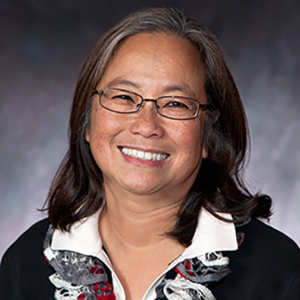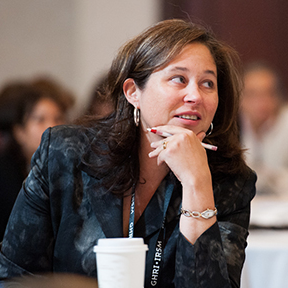On September 27, the Care Economies in Context Canada team gathered on the University of Toronto campus for an update on the project’s progress in Canada and in other countries, as well as a discussion of next phases. Team members also shared ideas for knowledge mobilization and communications strategies, student training, and engagement with other research, policy, and civil society networks.
Reports on Work Completed by the Canada Care Economies in Context Team
Progress made on Canadian quantitative data collection and analysis
Through a series of presentations, CGSP Research Assistants Kenny Smith, Jinri Kim, and Fabio Robibaro provided an in-depth progress report on Canadian data collection and analysis. Kenny Smith provided an overview of quantitative methodology, explaining that, during the summer of 2022, Angus Reid conducted two large N surveys: the first surveyed 1,000 primary or shared caregivers of children 15 years old or younger, and the second surveyed 997 people who identified as the main unpaid caregiver of people 65 years or older who need help with daily activities. Both surveys were balanced on age and gender, while the childcare survey was also balanced on region. Jinri Kim then spoke to preliminary findings from the childcare survey, explaining that “employee caregivers” (people who have jobs and provide care to their family or community members) of children are more likely to use paid childcare. Finally, Fabio Robibaro’s presentation demonstrated that employee caregivers of elders have better mental health outcomes than their counterparts who are not employed — a finding that challenges previous research.
Report on qualitative interviewing of unpaid senior care and childcare
RA’s Alexa Carson, Anna Kuznetsov, and Izumi Niki then presented on qualitative methodology and research findings. The data comes from follow-up interviews conducted from February to August 2023 with selected survey respondents. The research team conducted 46 in-depth video or phone interviews with unpaid childcare providers (parents) and 57 in-depth video or phone interviews with unpaid senior care providers (spouses, adult children, or other relatives). Interview themes included: household configurations, income/employment, and updates since survey; care arrangements (time and form of unpaid caregiving, plus use of paid care); care conditions, experiences, satisfaction, and access barriers; the burdens and benefits of unpaid caregiving; and policy recommendations.
According to the data, affordability is the most significant barrier to the use of paid childcare services by parents, and Anna Kuznetsov spoke to how this barrier affects women’s employment, family financial situations, and the use of unlicensed childcare centres by lower-income families. Alexa Carson then presented on “defining care moments,” or points in time when a care situation becomes untenable (or is projected to become untenable); preliminary analysis seems to show that, when these moments occur, both class and geography may affect caregiver stress levels. Finally, Izumi Kim presented a spotlight on the impacts of dementia on eldercare, concluding that comprehensive dementia care requires publicly-funded institutions with shortened waitlists, the provision of flexible home and community services, and increased support for family caregivers, including flexible and longer respite services, compensation, and assistance navigating social services.
Report on Qualitative Interviewing of unpaid carers of persons with disabilities, and paid care
RA’s Daniela Ugarte Villalobos, Aurelie Etienne, and Kayla Benjamin presented about Paid and Unpaid Disability Care, a research project done in collaboration with the Canadian Centre for Caregiving Excellence (CCCE). Daniela Ugarte Villalobos provided a methodological overview, explaining how the team conducted interviews with 44 people who participated in CCCE’s 2024 Caring in Canada study. Participants in this project care for people with disabilities, either as unpaid caregivers (family members or friends) or paid care providers. Aurelie Etienne spoke to emerging themes within the data on unpaid caregivers, focusing on the barriers that these caregivers face when trying to access care services, and how these barriers impact caregivers’ stress levels and financial situations. On the positive side, many participants report that the experience of caregiving provides fulfillment, learning, and time with loved ones.
Finally, Kayla Benjamin spoke to emerging themes within the data on paid care providers. There are many challenges that these workers face, from job precarity and workplace discrimination to the mental and physical toll of providing care both professionally and at home. And still, many respondents spoke about care work as a “calling” and their care recipients as “family.” From a policy perspective, respondents would like to see investments in the value of care work, both in terms of wages and reputation, as well as improved standards and accountability mechanisms amongst employers.
Next Steps and Upcoming Plans for the Canada Team
Macroeconomic Modeling
Maria “Sergy” Floro and Martin Cicowicz discussed the rationale and benefits of creating gender-informed macroeconomic models for the care economy. A computatable general equilibrium (CGE) model is a model of a nation’s full economy with inputs and outputs of labour and resources.CGE models are useful for testing the economic impact of policy change on a specific segment of the population or on the economy as a whole. When these models do not account for gender, they can miss the important work of the care economy that is often not compensated or is not fairly compensated. Martin and Sergy already worked with the teams in Korea and Colombia to make gender-informed CGE models specific to those countries’ care economies. The modelers will use nationally available time use data and household surveys to make the models but will also incorporate findings from our qualitative interviews. The Canada team needs to decide how to appropriately value the unpaid care work. We also need to decide which activities should be considered care work, which paid care workers should be considered in the model, and which policies are relevant for testing.
Caring Across Generations
In the first meeting of the Canada Team, the group identifying the “sandwich generation” as a group of caregivers of particular interest. Because it was sufficiently distinct from the goals of the larger Care Economies in Context project, we applied for and received a SSHRC Insight Grant (PI – Erica Di Ruggiero) that began in April 2024. The goals of the Caring Across Generations project are:
- Gain an appreciation of the differential and cumulative impacts of caregiving across two or more generations on stress, time crunch, sleep and general mental health
- Investigate the economic impacts of caregiving across two or more generations in terms of paid labour force participation, work and career trajectory, and financial burdens
- Understand the role of household power relations and institutional structures in shaping the caregiving context as played out in inequities according to race, gender, age, socio-economic status, geographic location, and immigration status
- Identify policy gaps and areas for intervention related to the unmet needs of unpaid caregivers
The project is still in the early stages. Kayla Benjamin is currently conducting a scoping review of the positive and negative effects of caregiving on mental health. Preliminary findings suggest a consensus in the literature that the caregiving burden is deeply gendered and that mental health worsens due to caregiving hours, intensity, sense of control. Kriti Sharma is beginning a policy scan of Canada’s policies that relate to caregivers, including programs, strategies, guidelines and legislation under the umbrella of “policies.” They will look at federal and provincial policy and then decide as to whether to highlight some policies at the municipal level.
The Care Economy and Climate Change
For two years, Ito co-chaired Room 5 (Gender) of the Brookings Institute’s 12 Rooms — an initiative that focused on identifying actions to achieve the UN’s Sustainable Development Goals. The group decided to focus on care and climate change. Emerging from that, she received a seed grant from Rockefeller Brothers Foundation to explore a project looking at the intersection of childcare and climate change in Canada and the US. Another group has taken on the initiative of building City Learning Labs that will seek and implement actionable policy change at the municipal level to address care and climate needs. She is also leading a group of scholars through the Royal Society of Canada who are developing policy briefs on topics related to care and climate change.
Related Profiles
-

Anna Kuznetsov
Trainee
-

Alexa Carson
Trainee
-

Pelin Gul
Trainee
-
Jinri Kim
trainee
-

Izumi Niki
Trainee
-

Fabio Robibaro
Trainee
-

Kenny Smith
Trainee
-

Daniela Ugarte Villalobos
Trainee
-

Ito Peng
Director
-

Maria Floro
Researcher
-

Erica Di Ruggiero
Researcher
-
Martin Cicowiez
Researcher
-
Aurelie Etienne
trainee
-
Kriti Sharma
Trainee

